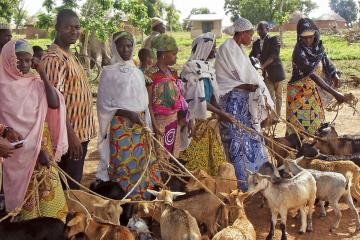
Graduation approach: Updated insights and best practices at scale
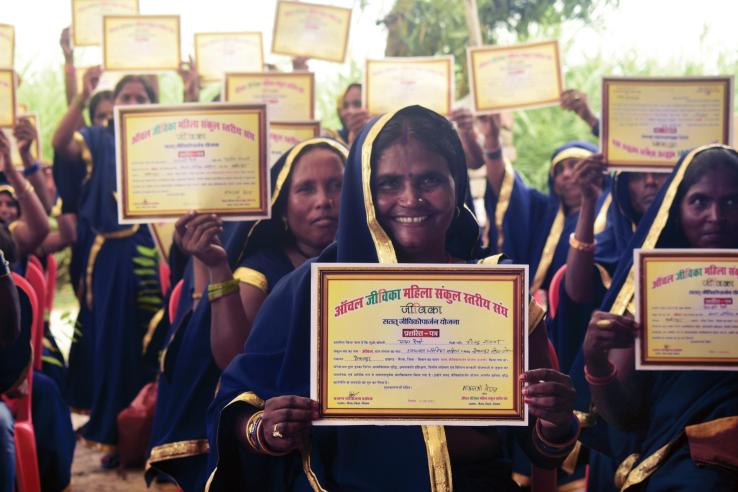
The 2023 Sustainable Development Goals Summit, a conference in New York to focus on driving economic prosperity and social well-being concluded on September 19. The event brought together world leaders, reaffirming a shared commitment to end poverty and address the needs of the most economically disadvantaged households. Often low-income households face concurrent socioeconomic challenges, like limited education, job scarcity, unmitigated risks, and the stress of poverty, which can intensify their challenges and hinder their path out of poverty.
The Graduation approach, a leading evidence-informed anti-poverty program developed by the NGO BRAC, combines asset transfers, training, financial support, coaching, and health services to address multiple constraints simultaneously. There is growing evidence from the J-PAL research network on the host of beneficial impacts of the program. Recently, J-PAL updated its Policy Insight on the Graduation approach, in addition to a guide outlining key lessons from the large-scale adaptation of the graduation program, Satat Jeevikoparjan Yojana (SJY) by the State Government of Bihar in India.
Evidence on the Graduation approach to date
Our recently updated Policy Insight synthesizes evidence from twenty randomized evaluations across sixteen countries, revealing significant and enduring economic improvements, with some studies showing persistent effects a decade after the initial asset transfer. Further, across contexts, positive impacts can be seen throughout consumption, income, food security, assets, savings, mental health, and women’s empowerment.
Additionally, the comprehensive program, with all its components intact tends to yield more substantial and enduring results, while simplifying the program by removing key elements tends to diminish its overall impact. Though the positive effects may be smaller, the cost reduction achieved by "unbundling" the program can be advantageous, particularly considering the potential prohibitive barrier posed by high program costs, as demonstrated in two specific studies.
A Graduation adaptation in focus: Satat Jeevikoparjan Yojana
One example of a large-scale adaptation of the Graduation approach by a Government is Satat Jeevijoparjan Yojana. In 2018, the Government of Bihar introduced a significant initiative called the Satat Jeevikoparjan Yojana (SJY) to combat extreme poverty on a large scale through the Graduation approach. Since its inception, the program has reached 155,00 households, surpassing its goal of 100,000, and is now aiming to reach 200,000, impacting approximately 10 million individuals.
The programme is led by JEEViKA, one of India’s largest State Rural Livelihoods Mission implementing community-based livelihoods programming, and is run in close collaboration with the NGO Bandhan-Konnagar, as the technical advisor, and J-PAL South Asia (SA) as the knowledge and learning partner. JEEViKA has leveraged its network of self-help groups to work towards the financial and economic inclusion of more than 13 million rural women.
J-PAL SA supports the program through process evaluation and knowledge management, conducting evaluation studies, impact assessments, and documenting process learning to strengthen program operations. It helps unpack essential questions on the program's cost-effectiveness, long-term impact, scalability of delivery methods, and the resilience and responsiveness of participants to shocks, among others. This evaluation process creates a knowledge base for states and countries interested in implementing and scaling the Graduation approach, particularly through the government.
Implementing Graduation approach at scale: Guide from Bihar
The SJY Playbook, drafted by J-PAL South Asia, is a guide that captures how SJY is being implemented at scale to reach 200,000 people living in ultra-poor households across 38 Districts in Bihar. This comprehensive guide serves as a one-stop repository for the SJY program by providing an understanding of the components, the rationale behind the design of the SJY program's implementation, and the best practices that lead to achieving the long-term well-being of beneficiaries. By sharing experiences implementing the program across many districts, the playbook is particularly useful for State Rural Livelihood Missions considering implementing the Graduation Approach at scale in different States and contexts.
Participants of the program share the impact that the program has had on their lives.
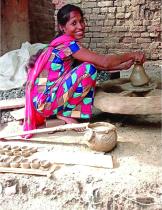
“I now want my daughter to pursue higher education. I want to contribute towards her education and help her grow.”
– Sheela Devi, Patna, Bihar
Assistance received:
Total investment Value: INR 30,000
Business started in 2020: Pottery business
Outcome:
Monthly Income: INR 9,333
Total Asset Value: INR 75,000
Photo Credit: J-PAL South Asia
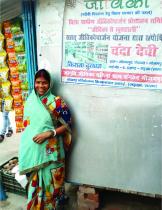
“I have learned so much (through JEEViKA) and now I want to grow my shop and educate my children.”
– Chandra Devi, Saran, Bihar.”
Assistance received:
Total Investment Value: INR 30,000
Business started in 2019: Kirana store (corner store)
Outcome:
Monthly income: INR 5,900
Total Asset Value: INR 100,000
Photo credit: J-PAL South Asia
Closing the loop: Lessons on scale
The SJY program shows that effective programs can be expanded by integrating them into state systems and infrastructure, ensuring they reach the most remote areas. Research results suggest the importance of a tailored bundled approach to address widespread extreme poverty within State Rural Livelihood Mission programs.
The ongoing process monitoring and continuous research conducted by J-PAL for State Rural Livelihood Missions and implementation organizations offer valuable insights. While these efforts are still in progress, the findings from this work can already provide important lessons for policymakers who are in the process of implementing similar programs.
The 3Is framework prioritizes an individual-first approach and utilizes data-driven design for a strategy against extreme poverty through tailored support and community-based organizations.
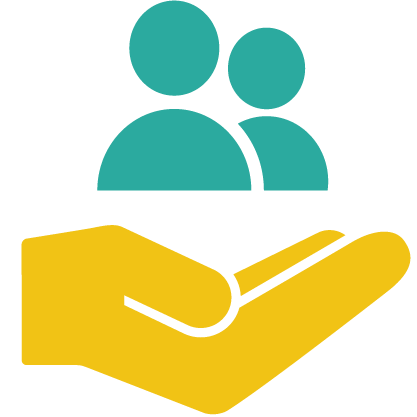 Including ultra-poor households through an individual-first approach. The lowest-income households persistently face marginalization and challenges. The ongoing evaluation of SJY shows that due to a greater need for support for these households, an individual mentoring approach can ensure the inclusion of these often-excluded households by enhancing their capacities with tailored individualized support.
Including ultra-poor households through an individual-first approach. The lowest-income households persistently face marginalization and challenges. The ongoing evaluation of SJY shows that due to a greater need for support for these households, an individual mentoring approach can ensure the inclusion of these often-excluded households by enhancing their capacities with tailored individualized support.
 Integrating the Graduation Approach programming within existing state systems and structures. The pathway to scale the graduation approach leveraging community-based organizations, like the ones created by JEEViKA (State Rural Livelihood Mission of Bihar) lends itself to other State Rural Livelihood Missions. For instance, creating a separate community cadre (Master Resource Persons) and building their capacity to reach the remotest parts of the state is critical to effectively delivering the SJY program. Institutes can explore ways to adapt and integrate this and other critical components from the Graduation Approach with their existing structures and cadres of community-based organizations to address extreme poverty in their context at scale.
Integrating the Graduation Approach programming within existing state systems and structures. The pathway to scale the graduation approach leveraging community-based organizations, like the ones created by JEEViKA (State Rural Livelihood Mission of Bihar) lends itself to other State Rural Livelihood Missions. For instance, creating a separate community cadre (Master Resource Persons) and building their capacity to reach the remotest parts of the state is critical to effectively delivering the SJY program. Institutes can explore ways to adapt and integrate this and other critical components from the Graduation Approach with their existing structures and cadres of community-based organizations to address extreme poverty in their context at scale.
 Iterating the design based on data for maximizing sustained impact: A strong management information system and rigorous process monitoring have helped drive efficiency and data-based decision-making at the last mile. Last mile agents provide a stream of regular information to Block officials of JEEViKA which then further gets aggregated at a District and State level. This granular information further feeds into important questions that need to be addressed through process monitoring surveys which allow for agile decision-making and a quick turnaround in adapting the design to meet local conditions.
Iterating the design based on data for maximizing sustained impact: A strong management information system and rigorous process monitoring have helped drive efficiency and data-based decision-making at the last mile. Last mile agents provide a stream of regular information to Block officials of JEEViKA which then further gets aggregated at a District and State level. This granular information further feeds into important questions that need to be addressed through process monitoring surveys which allow for agile decision-making and a quick turnaround in adapting the design to meet local conditions.
The randomized evaluation of the SJY Programme is on track to conclude in March–April 2024. This evaluation provides an exciting opportunity to assess how governments can implement the Graduation program and will help answer key questions on cost-effectiveness, impact over time, scalability of delivery methods, and resilience of participants, amongst other questions. Governments and NGOs can use the playbook and the Policy Insight as guides to tailoring Graduation-style programs to address extreme poverty.

